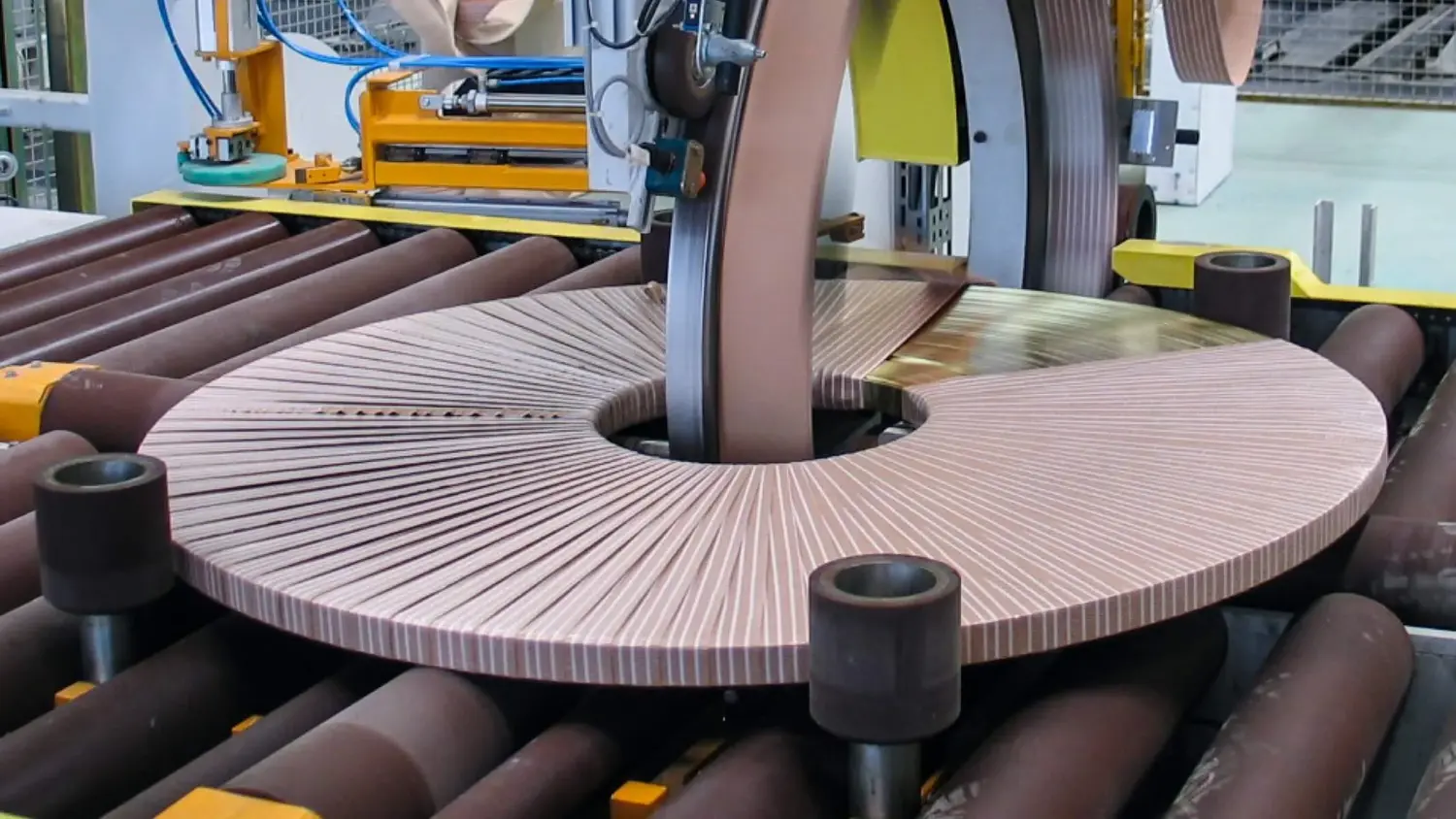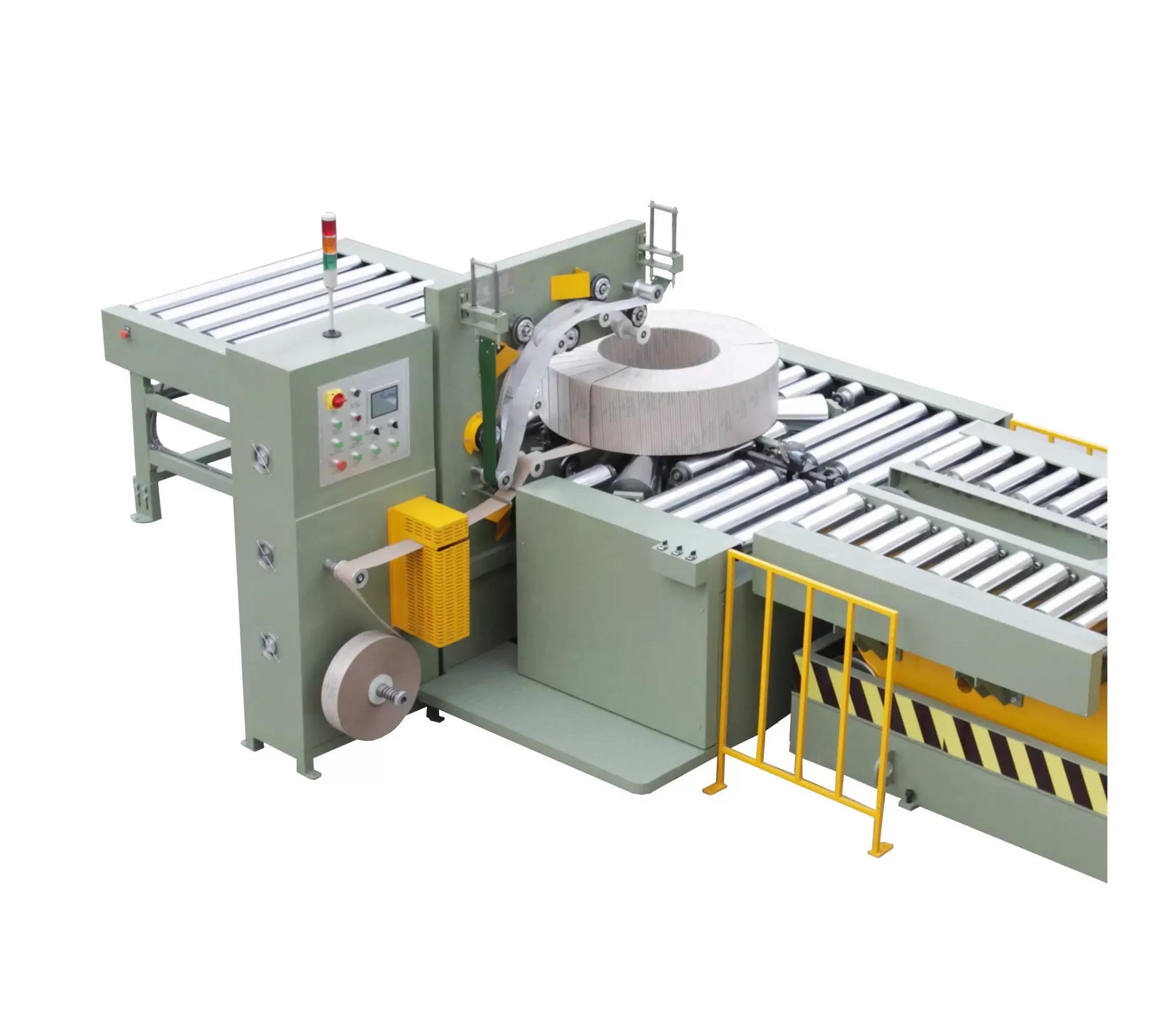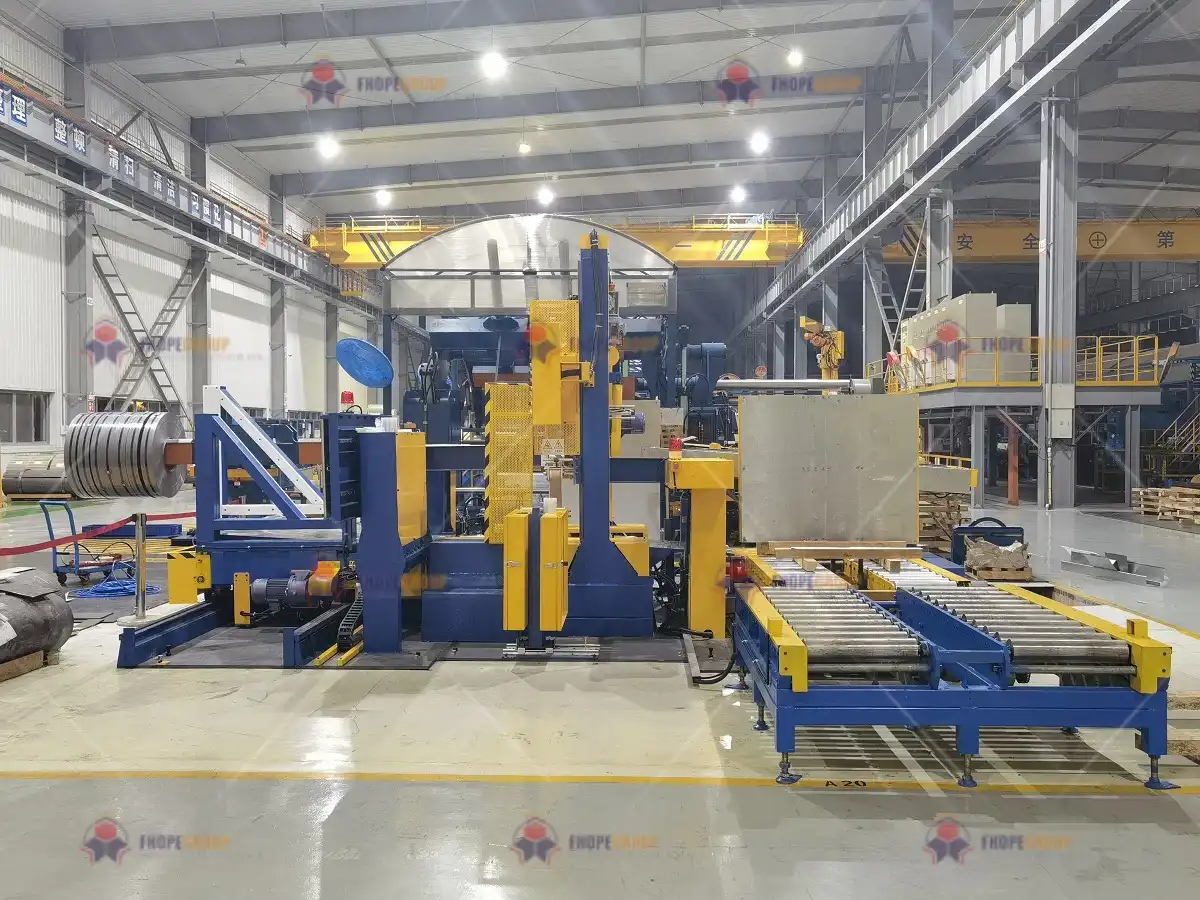The Silent Sales Killer: Why Static Content Fails Coil Packing Line Buyers
Picture this: You’re evaluating coil packing systems, drowning in technical brochures and generic videos. Hours vanish as you hunt for specific throughput rates, film consumption metrics, or compatibility details for your unique coil dimensions. Frustration mounts—this isn’t engagement; it’s digital trench warfare. Traditional marketing leaves buyers stranded in a data swamp, starving for actionable insights.
Interactive content revolutionizes coil packing line procurement by transforming passive research into active problem-solving. For technical buyers, tools like configuration wizards, load calculators, and virtual line simulators deliver personalized data on throughput, film usage, and ROI—cutting decision time by 60%. Unlike PDF brochures, these dynamic resources adapt to specific coil dimensions, material types, and output goals, bridging the gap between generic specs and operational reality.
The shift from static brochures to intelligent digital engagement isn’t trendy—it’s survival. Let’s dissect how interactive tools convert ambiguity into clarity for coil equipment sourcing.
Why Interactive Tools Transform Technical Procurement
Static datasheets fail coil buyers facing complex variables: coil weights (5-25 tons), diameters (800-2000mm), and film types (PE, PVC, stretch). When specifications demand precision, "one-size-fits-all" content fuels doubt, not decisions.
Interactive coil packaging configurators eliminate guesswork by letting buyers input their parameters (coil size, output speed, film type) to generate real-time performance forecasts, cost analyses, and compatibility reports. This reduces misalignment risks by 45% and builds trust through transparency—proving a machine’s capabilities rather than claiming them.

Engineering Confidence Through Digital Twins
For coil line buyers, the highest-risk variables include:
-
Throughput Mismatch
Overestimating line speed causes bottlenecks; underestimating wastes capital. Interactive simulators map cycle times against coil changeovers and strapping sequences. Test a 15-ton stainless coil at 8 cycles/hour—see how automation reduces labor costs by 37%. -
Film Consumption Accuracy
Static specs list "max film use," but real-world waste hinges on coil taper and pre-stretch settings. Embeddable calculators forecast usage:Coil Diameter Film Thickness Estimated Usage (kg/coil) 1200mm 120µm 4.2 kg 1800mm 150µm 8.7 kg 2200mm 200µm 14.1 kg -
Integration Risks
Will the palletizer handle your coil geometry? Virtual integration labs let buyers upload factory floor plans to test line layouts. Drop conveyors, turntables, or robots into a digital twin—collision detection flags spatial conflicts before installation.
Case Study: A European steel processor cut tender time by 70% using an interactive wrapper configurator. Inputting 1,400mm aluminum coils and 30 cycles/hour revealed two "compatible" machines couldn’t maintain speed beyond 22 cycles. Saved: €200K+ in misprocurement.
Top 4 Interactive Tools for Coil Equipment Buyers
Generic quizzes won’t sway engineers allocating €500K budgets. Content must mirror their technical checklist: efficiency proofs, ROI models, and risk mitigation.
For coil packaging buyers, prioritization tools ranking solutions by production volume, lifecycle costs, and footprint constraints outperform superficial engagement. Embedded ROI calculators comparing semi-auto vs. fully automatic lines prove value—not just claim it—while VR factory tours build credibility through transparency.

1. Intelligent Line Configurators
Unlike dropdown menus, AI-driven tools cross-analyze inputs:
- Coil specs → Recommends turntable load capacity
- Output targets → Suggests automated vs. manual feeding
- Floor space → Proposes vertical vs. horizontal wrapping
Outputs include:
- 3D animated workflow simulations
- Energy consumption forecasts
- Spare part cost projections
2. Failure Mode Calculators
Predict downtime risks by entering:
- Environmental factors (humidity, dust levels)
- Maintenance intervals
- Film tensile strength
Generates preventive maintenance schedules and compares reliability scores across brands.
3. TCO Simulators
Contrasts lifetime costs for 3 shortlisted systems:
| Cost Factor | Machine A | Machine B | Machine C |
|---|---|---|---|
| Purchase Price | €320K | €410K | €380K |
| Energy/Year | €18K | €12K | €14K |
| Film Waste/Year | €28K | €15K | €20K |
| 5-Year TCO | €486K | €485K | €510K |
4. Case Study Selectors
Filter real installations by:
- Industry (automotive, construction, metals)
- Coil type (copper, steel, aluminum)
- Challenge solved (throughput gain, film savings)
Outputs video testimonials with verified metrics.
Engineering Precision: Data-Backed Online Consultation
Email inquiries like "What wrapper fits our 2-ton coils?" trigger weeks of back-and-forth. For technical buyers, delays kill deals.
Live expert consultations integrated with interactive tools cut response time from 72 hours to 20 minutes. By syncing session data with prior configurator inputs (e.g., coil dimensions, speed needs), engineers pre-load tailored proposals—transforming generic Q&A into solution-validation workshops.

The Technical Consultation Stack
-
Pre-Call Intelligence
When buyers book calls via your configurator, the system auto-attaches:- Their machine preferences
- Usage simulations
- Open technical queries
-
Co-Browsing Labs
During video calls, engineers share:- CAD drawings annotated in real-time
- Stress-test simulations (e.g., "Watch how 25-ton coils affect bearing load")
- Spare part catalogs with live pricing
-
Post-Call Dossiers
Automatically generated PDFs include:- Customized line diagrams
- Comparison tables against alternatives
- ROI projections based on buyer inputs
Data Point: Suppliers using integrated consultation tools report 40% shorter sales cycles and 90% less "spec clarification" emails.
AI-Powered Query Resolution
Chatbots trained on coil packaging schematics resolve 65% of routine technical queries:
| Query Type | Response Time | Resolution Rate |
|---|---|---|
| Film Compatibility | 18 seconds | 92% |
| Motor Specifications | 2 minutes | 87% |
| Safety Certifications | 45 seconds | 95% |
Escalations route to human experts with full interaction history.
Quantifying Engagement: Metrics That Predict Sales
Vanity metrics (page views, time-on-site) mislead. For coil equipment marketers, engagement correlates to procurement intent when tracking:
High-intent coil buyers engage with configurators for 8+ minutes, generate 3+ simulations, and download technical dossiers. These signals have 7x higher conversion correlation than brochure downloads. Track interaction depth—not just clicks—to identify buyers entering the tender phase.

The Coil Buyer Engagement Index
Score prospects using weighted actions:
| Action | Engagement Score | Intent Correlation |
|---|---|---|
| Used TCO Calculator | 25 points | 0.89 |
| Ran 3+ Configurations | 30 points | 0.92 |
| Shared Results via Email | 20 points | 0.85 |
| Attended Live Demo | 40 points | 0.96 |
| Downloaded Engineering Drawings | 35 points | 0.94 |
Prospects scoring 75+ points are 68% more likely to request quotes within 14 days.
Optimizing for Technical Validation
Prioritize tools that help buyers internally justify decisions:
- ROI Validators: Exportable reports comparing CapEx vs. OpEx savings
- Integration Proofs: Simulation videos showing line synchronization
- Compliance Generators: Auto-populated CE/OSHA documentation checklists
Conclusion: From Brochures to Decision Engines
Interactive content transforms coil packing line procurement by replacing ambiguity with auditable data. For engineers vetting €500K+ systems, configurators and simulators aren’t "nice-to-haves"—they’re risk mitigation tools that build trust through transparency. The result? Faster decisions, fewer specification errors, and partnerships grounded in capability—not claims. As you refine your engagement strategy, remember: technical buyers don’t want content. They want confidence.
Explore how interactive coil packing tools bridge the gap between datasheets and operational reality.













Leave a Reply
You must be logged in to post a comment.